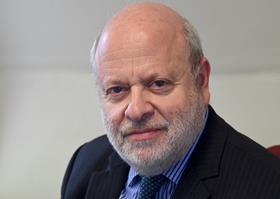It is rare for a court case to turn on the definition of what is, and what is not, an independent lawyer.

It happened last week in the Court of Justice of the European Union (CJEU) in a case concerning a matter about which many European jurisdictions still worry: when is an in-house counsel sufficiently independent in the eyes of the court (Joined Cases C‑515/17 P and C‑561/17 P)?
Although we are escaping the jurisdiction of the CJEU, this decision is still of importance to in-house counsel (nearly a quarter of the solicitors’ profession) in their long campaign to find equal recognition in other countries around the world. I wrote about the case about two and a half years ago, when the original General Court decision was handed down. This decision has now been overturned.
The facts are these. A university in Wroclaw, Poland, brought a case against the EU’s executive agency for research in a dispute over money owed to the agency. The lawyer representing the university also worked at the university, but the university denied that that interfered with his independence.
He had had two distinct periods of involvement with the university. First, he had been an employee for over 20 years, combining research with running conferences. Then, some months before the case was submitted by the lawyer on behalf of the university, his status changed. He was no longer on an employment contract, but on ‘a civil law contract’ for teaching international private law, holding seminars, and organising examinations.
In parallel, he had also established a lawyer’s professional practice outside the university, and the university said that the case was submitted through that professional practice. The ‘civil law contract’ implied no subordination of the lawyer to the dictates of the university when practising his profession through his own firm.
The General Court found that, even if it were not formally an employment relationship, the situation of the lawyer created a risk that his professional opinion might, at least partly, be influenced by his working environment.
The Grand Chamber reversed this, in a refinement of what it means to be an independent lawyer. It agreed with the General Court that it does not matter what Polish law says about the situation of the lawyer – he would have been able to submit the case domestically without any problem – because representation before the CJEU is an autonomous question to be settled by the CJEU itself.
The relevant parts of the CJEU’s Statute and its rules of procedure require representation by a lawyer. The CJEU said that the objective is ‘on the one hand, to prevent private parties from acting on their own behalf before the Courts without using an intermediary and, on the other, to ensure that legal persons are defended by a representative who is sufficiently distant from the legal person which he or she represents’.
But what is sufficient distance? Here the Court said that the lawyer’s duty of independence is to be understood not as the lack of any connection whatsoever between the lawyer and client, but the lack of connections which have a manifestly detrimental effect on his or her capacity to carry out the task of defending the client while acting in that client’s interests to the greatest possible extent. This was the breach in the wall, which allowed some connection with the client.
The court gave further detail, finding it easier to say who would not be considered sufficiently independent, as follows:
- a lawyer who has been granted extensive administrative and financial powers which place his or her function at a high executive level within the legal person he or she is representing, such that his or her status as an independent third party is compromised
- a lawyer who holds a high-level management position within the legal person he or she is representing
- a lawyer who holds shares in and is the president of the board of administration of the company he or she is representing
In the case under decision, though, the lawyer was not defending the interests of the University of Wrocław in the context of a hierarchical relationship, but was simply connected by a contract for the provision of lecturing services. The Court said that that cannot be regarded as equivalent to the situations outlined above.
Although the decision is strictly about the interpretation of the CJEU’s own statute, and nothing else, there is nevertheless a more general conclusion to be drawn. The CJEU has provided reasons against the absolutist interpretation, held by some, which says that in-house counsel can never be independent. By giving examples of non-independent lawyers (very high-level in-house counsel intricately involved with important day-to-day business decisions), the implication is that those with more tenuous connections with core business decisions can argue for their independence.































No comments yet